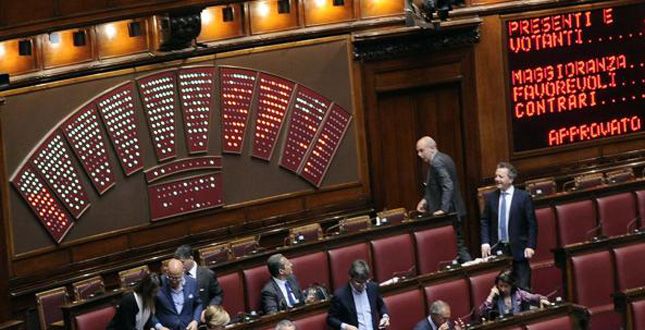Reform to Italy's divorce law
Speedier divorces have now been approved by both houses of parliament.
The introduction of “divorce” into the Italian legal system has had a long and difficult history accompanied by debates that have raged for over a century.
Following the Concordat of 1929 between the Italian state and the Catholic Church, a political treaty was reached which created the state of the Vatican City and guaranteed full and independent sovereignty to the Holy See. In return the pope had to pledge neutrality in international relations and matters of state. However, the Church retained spiritual jurisdiction in Italy and marriage was seen to fall within this jurisdiction. Therefore, in the preparatory works for the Italian Civil Code of 1942 the subject of divorce could only be talked about but nothing was implemented. It was only in 1970 that “divorce” or should we rather say the dissolution of marriage entered into the Italian legal system. The divorce process took five to six years. A judge could dissolve a marriage civilly, but this only impacted on the civil effects of the marriage and in no way impaired either the validity of the act of marriage or its religious effects.
The 1970 law was amended in 1978 and again in 1987 and the final divorce decree could only be issued by a judge after three continuous years of legal separation.
On 29 May 2014 a draft act was approved in parliament to shorten the divorce process. This draft was altered and accepted by the senate on 6 February 2015. This has now been passed by the house of deputies, with 398 votes in favour, 28 against and six abstensions. It will become law when it has appeared in the Gazzetta Ufficiale, after which it will be immediately applicable to divorce cases already in process.
The new law reduces consensual divorces to a period of six months from the time the couple appears in court and the act of divorce is registered by the president of the court. Contested divorces will be reduced to a period of 12 months following a judicial process to resolve differences.
According to the act the period of separation starts when the couple appear in court and lodge their act of separation. Therefore it would be included in the six months for consensual divorce and 12 months for contested divorces, not a separate period of time as before.
The changes in the new act do not impact on other issues surrounding divorce, such as maintenance, child custody and division of assets.
With regard to divorce maintenance, Italian law grants divorce solely in the event of “irretrievable breakdown of marriage” and not based on the basis of “fault”, therefore neither party may claim damages in their divorce settlement.
Maintenance is seen as assistance and not compensation and is therefore granted to the financially weaker party only if they have proof that they have no appropriate means to provide for themselves or minor children (inability to work due to illness or other reasons).
Maintenance is not based on the level of the quality of life during the marriage but rather on sustaining a basic quality of life after the divorce. Maintenance granted at the time of divorce may be reversed at a later date should the claimant regain the ability to support themselves.
Maintenance is adjusted to accommodate increases in the cost of living. A spouse that has no recourse to medical assistance is entitled to existing health insurance from the other spouse.
Maintenance is normally paid in monthly installments at the source of earning but in some cases a once-off lump sum may be awarded and once paid the claimant has no further recourse to claim. Under Italian law maintenance is always payable to children.
With regard to child custody, law 54 of 2006, introduced into Italy the fundamental principle of the joint custody of children upon breakdown of marriage. Art. 155 of the Civil code now expressly provides that even in the case of legal separation, minor children have the right to maintain a balanced and continuous relationship with both parents and to receive care, education and instruction and the right to maintain meaningful connections with the relatives of each parent. The same rules are applicable in the case of divorce.
Sole custody of children will only be considered in three situations. When one of the parents is undoubtedly and seriously unsuitable to provide an education to the children. If one of the parents has an “abnormal way of life” which appears to be dangerous to the children. When there is a categorical refusal of the children to have a relationship with a parent.
The existence of a disagreement between the parents is not relevant, unless the conflict is so serious as to alter and affect the balanced growth of the children. Parents are jointly responsible for the material and spiritual needs of their children, even after the age of 18, until they have appropriate financial means to take care of themselves. No parent may remove a child from Italy and relocate abroad unless they have the explicit permission of the other parent. Doing so constitutes abduction.
See original article by Studio Annino.
Studio Legale Annino



















